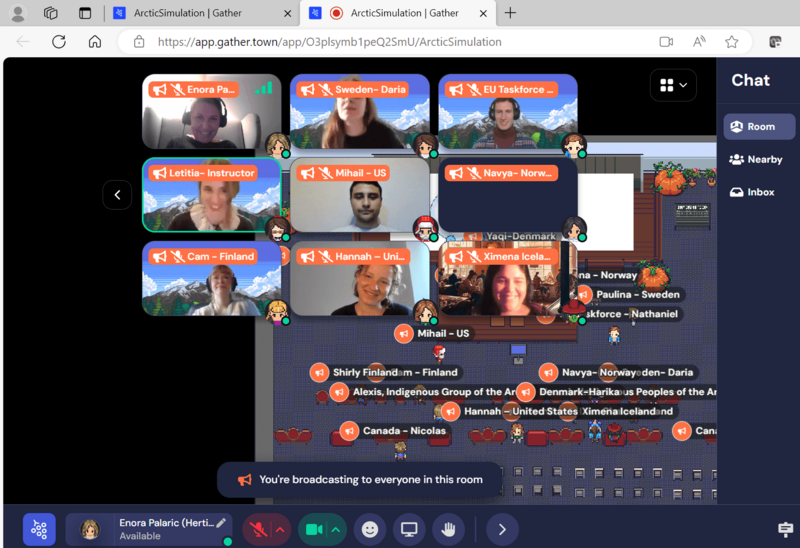
Hertie School students take home three prizes from CIVICA's online policy simulation “Project Arctic”.
On 28 and 29 October, 18 CIVICA students from 13 countries simulated a crisis situation in the Arctic region. “Project Arctic: A simulation of climate-induced conflict in the Arctic Region” was offered by the IPLI Foundation, in collaboration with CIVICA – The European University of Social Sciences.
A very rich two-day programme for CIVICA students
Following a general introduction into the key dynamics in the Arctic region and the presentation of a crisis scenario, students were paired up to represent different delegations in an interactive role play. They engaged in intense negotiations with other delegations, which cumulated in an online simulation of an Arctic Council general meeting. At the end of the two days, each delegation compiled their strategies, proposals and visions into a policy brief.
Thanks to an interactive platform simulating the environment of the Arctic Council, students could also get to know each other and enjoyed creating new connections with students from other universities.
Acquiring new skills through online policy simulations
Besides learning more about current policy developments in the Arctic region, participants acquired key practical skills to prepare them to resolve conflicts and advance policies in multilateral settings. The students especially appreciated the opportunity to learn new skills outside of their classrooms.
After two intense days of role play, Master of Public Policy (MPP) student Nicolas Henriksson and Nathaniel Monahan-Lai from the London School of Economics were voted “Best Speaker” and “Best Delegation Performance” respectively by their peers. The IPLI Foundation selected the Iceland Delegation, represented by MPP students Hermia Tin Lam Chan and Ximena Docarmo, for the “Best Policy Brief” award.
According to Nicolas Henriksson, “the IPLI Arctic negotiation simulation provided an authentic policy making environment in which students were forced to build coalitions, bargain and consider the realities of crisis scenarios in the Arctic region. In exchange with international students from all over Europe, we successfully concluded a number of Arctic Council sessions in an immersive online environment. This experience taught me practical negotiation skills, as well as drafting concise policy briefs, complementing the classroom teachings of my public policy degree very well. I am already looking forward to the next IPLI policy simulation.”
A successful partnership between CIVICA and the IPLI Foundation
The policy simulation was offered by the IPLI Foundation, a philanthropic organisation dedicated to supporting academic and applied research initiatives in the fields of development and multi-dimensional human security public policy issues. The partnership with CIVICA enriched the policy simulation by bringing together students from very diverse backgrounds.
IPLI Executive Director Timothy Reno says: "CIVICA's innovative, next-generation university model enabled the IPLI Foundation to deliver a highly dynamic educational ‘EU Policy Simulator’ experience to an impressively diverse range of students across Europe. IPLI looks forward to expanding cooperation with CIVICA into the future!"
CIVICA – The European University of Social Sciences brings together ten leading European higher education institutions in the social sciences. CIVICA aims to build an inter-university campus that provides joint and long-lasting opportunities in teaching, research and innovative learning, while enhancing academic excellence and facilitating civic engagement in Europe and beyond. CIVICA was selected by the European Commission as one of the pilot European Universities in 2019 and confirmed as successful alliance in 2022 for its full roll-out under the Erasmus+ programme. Read more on civica.eu.
-
Enora Palaric, Manager International Alliances
